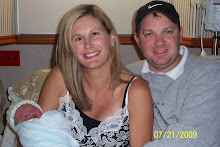Little People of America gather in Akron area
By Jim Carney
Beacon Journal staff writer
POSTED: 05:56 p.m. EDT, Apr 30, 2011
In her years in medical school and residency training to be a family-practice doctor, Dr. Michelle Platz never learned about dwarfism.
When her son, Max, was born 21 months ago, he was diagnosed with a common form of dwarfism.
''It came as a shock,'' Platz said, but she quickly studied everything she could find to learn about the issues faced by her son.
On Saturday, the family practice physician from Lake County and her family were at the Sheraton Suites hotel in Cuyahoga Falls, meeting other families and individuals with the same issue at the spring regional meeting of the Little People of America.
About 200 little people, including 50 to 60 children, and their families spent the weekend at the hotel, socializing and getting medical attention at an all-day Saturday medical symposium at Akron Children's Hospital, where physicians volunteered their time and services, and came from around the country.
For Platz, 38, who has two average-sized children, the weekend was a great opportunity to meet other families with children who are short in stature.
''The only thing that makes Max any different is that he's going to be short-statured,'' she said. ''He will have the same opportunities,'' as her other children.
Through the Little People of America group, he will meet others with his condition who will become role models, she said.
Dr. Dennis Weiner, chairman of orthopedic surgery and the director of the Skeletal Dysplasia Center at Akron Children's Hospital, said little people — the preferred term to use to describe individuals who are short-statured — can have myriad medical issues, ranging from deformities of the extremities and trunk to ear nose, throat and breathing problems to cardiac problems.
Genetic testing is important, he said, and advances in genetics help with diagnosing particular types of dwarfism.
''They need a diagnosis established,'' he said in order to get the best medical care.
Eight doctors volunteered their time to provide free 20-minute medical appointments, as did Annie Yahner, a dietitian and nutritionist with the Skeletal Dysplasia Center.
''We're the same as you. We're just in a little body,'' said Yahner, 44, of Cuyahoga Falls, who is a little person.
Yahner said she believes little people are the last group in America that is is socially acceptable to make fun of. She said that happens through misunderstanding, not being malicious.
She said what she likes to say to people about her being 4 feet, 2 inches tall is ''I am little because that's how God made me.''
One of the issues she educates families about is overeating.
''We have to understand that we cannot eat as much'' as average adults, she said.
Tami Herring, chairman of the hospitality room committee for the gathering, said people came from Ohio, Michigan, Indiana, Kentucky and West Virginia.
The regional meetings, she said, can be important social events for little people, said Herring, who is herself a little person and who works for Summa Health System.
''There are so few of us, it is nice to be around people your own size with your own difficulties,'' said Herring, 48, of Munroe Falls.
''It is nice to dance with someone your own height,'' she said. ''A lot of people meet their future spouses here.''
Medically, there are many issues faced by little people, she said, ''but we learn to adapt.''
She has an average-sized daughter and an average-sized mother.
Her father, Jay Herring, 70, also of Munroe Falls and also a little person, said the way people treat little people has improved in his lifetime.
''You will still have stares,'' said Herring, a retired head of quality control for a machine shop.
Meanwhile, Platz said she remembers getting on an elevator at University Hospitals in Cleveland, where she works, as she and her husband, Eric were waiting for a blood test on their son, when a little person got on the elevator with her.
Until then, she had never encountered a little person before. ''I think God was trying to tell me something,'' she said.
That was that her son's condition ''is going to become a normal part of your life,'' she said. ''It is different than what you have experienced but it as normal as anything else.''

















